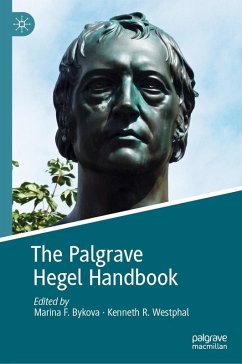This handbook presents the conceptions and principles central to every aspect of Hegel's systematic philosophy. In twenty-eight thematically linked chapters by leading international experts, The Palgrave Hegel Handbook provides reliable, scholarly overviews of each subject, illuminates the main issues and debates, and details concisely the considered views of each contributor. Recent scholarship challenges traditional, largely anti-Kantian, readings of Hegel, focusing instead on Hegel's appropriation of Kantian epistemology to reconcile idealism with the rejection of foundationalism, coherentism and skepticism. Focused like Kant on showing how fundamental unities underlie the profusion of apparently independent events, Hegel argued that reality is rationally structured, so that its systematic structure is manifest to our properly informed thought. Accordingly, this handbook re-assesses Hegel's philosophical aims, methods and achievements, and re-evaluates many aspectsof Hegel's enduring philosophical contributions, ranging from metaphysics, epistemology, and dialectic, to moral and political philosophy and philosophy of history. Each chapter, and The Palgrave Hegel Handbook as a whole, provides an informed, authoritative understanding of each aspect of Hegel's philosophy.
Dieser Download kann aus rechtlichen Gründen nur mit Rechnungsadresse in A, B, BG, CY, CZ, D, DK, EW, E, FIN, F, GR, HR, H, IRL, I, LT, L, LR, M, NL, PL, P, R, S, SLO, SK ausgeliefert werden.









